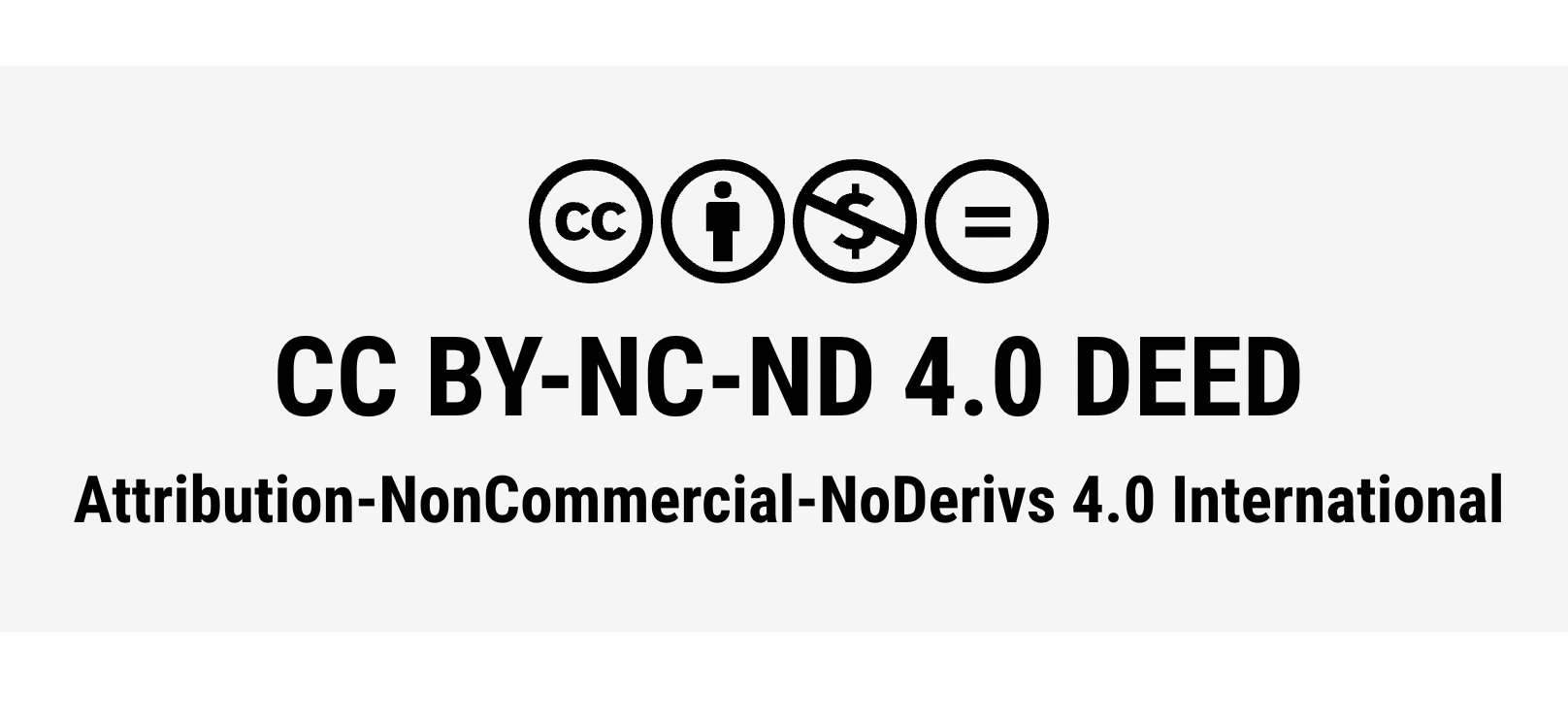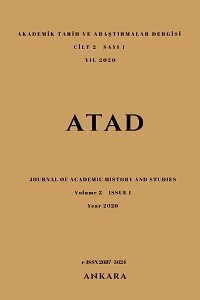Abstract
References
- - القرآن الكريم.
- 1-أبحــاث فـــي الشـــرائع ) اليهوديـــة والنصـــرانية واإلســـالم (، د. فـــؤاد عبـــد المــــنعم، نشــــر مؤسســــة شــــباب الجامعــــة، اإلســــكندرية ، 1414ه - 1994م.
- 2-األسس النظرية للنظام االقتصاد اإلسالمي، د. خالد المقرن ، مكتبة المتنبي، الرياض، 2009م.
- 3-اقتصاديات الغنى في اإلسالم ، د. عمر المرزوقي ، جامعة الملك سعود ، الرياض ،عمادة البحث العلمي ، 1423هـ. 4-األموال، أبو عبيد ، تحقيق: محمد هراس، بيروت ، دار الكتب العلمية، .1986
- 5-تدخل الدولة في النشاط االقتصادي في إطار االقتصاد اإلسالمي، د. محمد فتحي صقر ، مطابع المختار االسالمي، 1985م.
- 6-التضخم والبطالة في إطار التكييف الهيكلي من منظور إسالمي، د. قاسم الحموري ، بحث منشور في كتاب التنمية من منظور إسالمي، الناشر البنك اإلسالمي للتنمية، مؤسسة آل البيت، 1991م.
- 7-التعاليم المسيحية ومبادئ الفكر االقتصادي، أ. ناجي جيد، مكتبة الكتب القبطية األرثوذكسية، موقع األنبا تكال هيمانوت، 2011 م.
- 8-التفسير التطبيقي للكتاب المقدس، التعريب والجمع التصويري لجنة الترجمة، وليم وهبة وآخرون، شركة ماستر ميديا ، بال- ت ، 1882م.
- 9-دور القيم واألخالق في االقتصاد اإلسالمي، د. يوسف القرضاوي، مكتبة وهبة، ط1 ،1415هــ.
- 10 -رسالة بولس الرسول الثانية إلى أهل كورتثوس ، في النسخة المعتمدة لدينا من التفسير التطبيقي للكتاب المقدس، التعريب والجمع التصويري، وليم وهبة وآخرون. 32
- 11 -رسالة في الالهوت والسياسة، األستاذ بارو سبينوزا ، ترجمة وتقديم: د. حسن حنفي، مراجعة: د. فؤاد زكريا، ، الطبعة الثالثة، بيروت ، 1994م .
- 12 -رة بن موسى بن الضحاك، ْ و َ سنن الترمذي ، محمد بن عيسى بن س الترمذي، أبو عيسى )المتوفى: 279هـ( تحقيق وتعليق: أحمد محمد ب ارهيم عطوة عوض
- شاكر ومحمد فؤاد عبد الباقي وا ، شركة مكتبة ومطبعة مصطفى البابي الحلبي، مصر، الطبعة الثانية، 1395 هـ - 1975 م .
- 13 -الفقه االجتماعي للكنيسة، د. وليم فابريل ، ترجمة : عادل زعيتر، منشورات الكنيسة الكاثوليكية ، مصر ، 2009م.
- 14 -فقه المعامالت المالية في األديان السماوية ، د. أبو عبد اهلل بامبا عاجي، دار عباد الرحمن، الطبعة األولى ، القاهرة، مصر ، 1430هـ - 2009م .
- 15 -قضايا إنسانية في الفكر الديني الفلسفي، د. محمد سيد أحمد المسير، مكتبة الصفا، القاهرة، 1420ه-2000م .
- 16 -الكتـاب المقـدس ، بطريـك بابـل علـى الكلـدان : مـار روفائيـل بيداويـد األول، إصـدار دار الكتـاب المقـدس فـي الشـرق األوسـط بـإذن الرؤسـاء ، جمعية الكتاب المقدس ، لبنان ، ) 1993 -1995م ( .
- 17 -المال والتشبث به، مشيل دي فاليري ، مركز دافينش، المصرية للنشر والتوزيع، 2006م .
- 18 -محاور االلتقاء ومحاور االفتراق بين المسيحية واإلسالم ، األستاذ غسان سليم سالم، الطبعة األولى، دار الطليعة، بيروت ، 2004م .
- 19 -المسند لإلمام أحمد بن حنبل، شرحه أحمد شاكر، دار المعارف مصر، 1396هـ.
- 20 -المصــنف، أبــي بكــر عبــد الــرزاق بــن همــام، تحقيــق: حبيــب الــرحمن األعظمي ، المكتب اإلسالمي، بيروت، ط1 ،1392هــ 33
- 21 -المعجم الكبير، سليمان بن أحمد بن أيوب بن مطير اللخمي الشامي، أبو القاسم الطبراني )المتوفى: 360هـ( ، تحقيق: حمدي عبد المجيد السلفي ، مكتبة ابن تيمية، القاهرة، الطبعة الثانية، بال – ت .
- 22 -الملل والنحل، أبو الفتح محمد بن عبد الكريم بن أبي بكر أحمد الشهرستاني )المتوفى: 548هـ( مؤسسة الحلبي ، بال - ت .
- 23 -المنجد في اللغة واألعالم، لويس معلوف وفردينانتوتل، ط7 ،دار المشرق ، بيروت ، 1973م.
- 24 -النظــــام االقتصــــادي فــــي اإلســــالم، د. أحمــــد العســــال، د. فتحــــي عبدالكريم، مكتبة وهبة،1977.
- ب- مواقع النت : 1-خصائص النظام االقتصادي اإلسالمي وأهدافه ، مقال نشرته المدونة اإللكترونية )ستقرأ( على النت ، على الرابط اآلتي : https://www.satuqra.com/2020/03/blog-post_7825.html.
Abstract
This article examines the point of view of Christian and
Islamic thought regarding money - as the basis of economic
activity -, and how Christian thought considers money as
absolute property of God and the role of man in it is only a
successor and a proxy of God in this money, and that this
agency is linked to not being allowed to freeze it, but rather to
direct it and invest it In a time of need for justice, and
achieving benefit for him and others, as for just his behavior -
the human being - otherwise, it is considered a betrayal of the
agency and succession in this money.
As for the Islamic thought that recognizes the importance of
money in economic work as it is the one who frees the person
from the question - as this thought is part of the Islamic system
- he emphasized the dignity of the work, and even raised its
value and raised it to the degree of worship, when it is
combined with good intention and adheres to the legal
provisions, considering That among the characteristics of this
activity is its association with morality and worship and has
lofty goals that it seeks to achieve that do not violate these
legal provisions, making oversight of this work stems from
within the Muslim himself, and not only the control of the
country concerned with this; that this action is aimed at
achieving sufficiency For this human not even The fact that
there are significant disparities in wealth and income
distribution, hence the achievement of physical strength and
defense between the members of the Islamic nation.
References
- - القرآن الكريم.
- 1-أبحــاث فـــي الشـــرائع ) اليهوديـــة والنصـــرانية واإلســـالم (، د. فـــؤاد عبـــد المــــنعم، نشــــر مؤسســــة شــــباب الجامعــــة، اإلســــكندرية ، 1414ه - 1994م.
- 2-األسس النظرية للنظام االقتصاد اإلسالمي، د. خالد المقرن ، مكتبة المتنبي، الرياض، 2009م.
- 3-اقتصاديات الغنى في اإلسالم ، د. عمر المرزوقي ، جامعة الملك سعود ، الرياض ،عمادة البحث العلمي ، 1423هـ. 4-األموال، أبو عبيد ، تحقيق: محمد هراس، بيروت ، دار الكتب العلمية، .1986
- 5-تدخل الدولة في النشاط االقتصادي في إطار االقتصاد اإلسالمي، د. محمد فتحي صقر ، مطابع المختار االسالمي، 1985م.
- 6-التضخم والبطالة في إطار التكييف الهيكلي من منظور إسالمي، د. قاسم الحموري ، بحث منشور في كتاب التنمية من منظور إسالمي، الناشر البنك اإلسالمي للتنمية، مؤسسة آل البيت، 1991م.
- 7-التعاليم المسيحية ومبادئ الفكر االقتصادي، أ. ناجي جيد، مكتبة الكتب القبطية األرثوذكسية، موقع األنبا تكال هيمانوت، 2011 م.
- 8-التفسير التطبيقي للكتاب المقدس، التعريب والجمع التصويري لجنة الترجمة، وليم وهبة وآخرون، شركة ماستر ميديا ، بال- ت ، 1882م.
- 9-دور القيم واألخالق في االقتصاد اإلسالمي، د. يوسف القرضاوي، مكتبة وهبة، ط1 ،1415هــ.
- 10 -رسالة بولس الرسول الثانية إلى أهل كورتثوس ، في النسخة المعتمدة لدينا من التفسير التطبيقي للكتاب المقدس، التعريب والجمع التصويري، وليم وهبة وآخرون. 32
- 11 -رسالة في الالهوت والسياسة، األستاذ بارو سبينوزا ، ترجمة وتقديم: د. حسن حنفي، مراجعة: د. فؤاد زكريا، ، الطبعة الثالثة، بيروت ، 1994م .
- 12 -رة بن موسى بن الضحاك، ْ و َ سنن الترمذي ، محمد بن عيسى بن س الترمذي، أبو عيسى )المتوفى: 279هـ( تحقيق وتعليق: أحمد محمد ب ارهيم عطوة عوض
- شاكر ومحمد فؤاد عبد الباقي وا ، شركة مكتبة ومطبعة مصطفى البابي الحلبي، مصر، الطبعة الثانية، 1395 هـ - 1975 م .
- 13 -الفقه االجتماعي للكنيسة، د. وليم فابريل ، ترجمة : عادل زعيتر، منشورات الكنيسة الكاثوليكية ، مصر ، 2009م.
- 14 -فقه المعامالت المالية في األديان السماوية ، د. أبو عبد اهلل بامبا عاجي، دار عباد الرحمن، الطبعة األولى ، القاهرة، مصر ، 1430هـ - 2009م .
- 15 -قضايا إنسانية في الفكر الديني الفلسفي، د. محمد سيد أحمد المسير، مكتبة الصفا، القاهرة، 1420ه-2000م .
- 16 -الكتـاب المقـدس ، بطريـك بابـل علـى الكلـدان : مـار روفائيـل بيداويـد األول، إصـدار دار الكتـاب المقـدس فـي الشـرق األوسـط بـإذن الرؤسـاء ، جمعية الكتاب المقدس ، لبنان ، ) 1993 -1995م ( .
- 17 -المال والتشبث به، مشيل دي فاليري ، مركز دافينش، المصرية للنشر والتوزيع، 2006م .
- 18 -محاور االلتقاء ومحاور االفتراق بين المسيحية واإلسالم ، األستاذ غسان سليم سالم، الطبعة األولى، دار الطليعة، بيروت ، 2004م .
- 19 -المسند لإلمام أحمد بن حنبل، شرحه أحمد شاكر، دار المعارف مصر، 1396هـ.
- 20 -المصــنف، أبــي بكــر عبــد الــرزاق بــن همــام، تحقيــق: حبيــب الــرحمن األعظمي ، المكتب اإلسالمي، بيروت، ط1 ،1392هــ 33
- 21 -المعجم الكبير، سليمان بن أحمد بن أيوب بن مطير اللخمي الشامي، أبو القاسم الطبراني )المتوفى: 360هـ( ، تحقيق: حمدي عبد المجيد السلفي ، مكتبة ابن تيمية، القاهرة، الطبعة الثانية، بال – ت .
- 22 -الملل والنحل، أبو الفتح محمد بن عبد الكريم بن أبي بكر أحمد الشهرستاني )المتوفى: 548هـ( مؤسسة الحلبي ، بال - ت .
- 23 -المنجد في اللغة واألعالم، لويس معلوف وفردينانتوتل، ط7 ،دار المشرق ، بيروت ، 1973م.
- 24 -النظــــام االقتصــــادي فــــي اإلســــالم، د. أحمــــد العســــال، د. فتحــــي عبدالكريم، مكتبة وهبة،1977.
- ب- مواقع النت : 1-خصائص النظام االقتصادي اإلسالمي وأهدافه ، مقال نشرته المدونة اإللكترونية )ستقرأ( على النت ، على الرابط اآلتي : https://www.satuqra.com/2020/03/blog-post_7825.html.
Details
| Primary Language | Arabic |
|---|---|
| Journal Section | Research Articles |
| Authors | |
| Publication Date | June 23, 2020 |
| Acceptance Date | June 15, 2020 |
| Published in Issue | Year 2020 Volume: 2 Issue: 1 |
Our journal is a member of CrossRef. 

